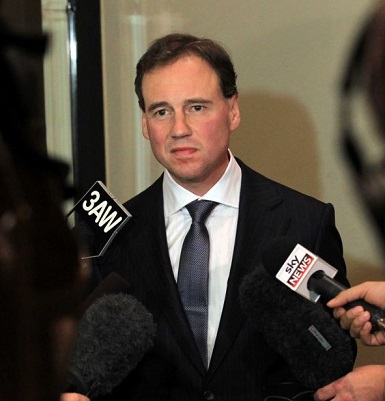RET deal coming, but reviews remain
 Bipartisan support on the level of the Renewable Energy Target (RET) has finally been reached, swapping a mandated 8,000 gigawatt hours of renewable energy for certainty in the industry.
Bipartisan support on the level of the Renewable Energy Target (RET) has finally been reached, swapping a mandated 8,000 gigawatt hours of renewable energy for certainty in the industry.
Renewable energy investment had been strongly hindered by the Federal Government’s inability to agree on how much it would cut from the RET scheme.
It has now settled, albeit “in principle”, on a figure – reducing the RET from 41,000 gigawatt hours down to 33,000.
But again, renewable energy companies say the Federal Government is stopping investment.
Green energy firms say they are disappointed at the retention of a two-yearly review of the target, something they thought would be gone.
The new deal means another review will be undertaken in 2016, following two reviews last year, one of which recommended slashing the target.
In a joint statement last month, the environment and industry ministers said: “We will also remove the requirement for regular two-yearly reviews of the RET to give the industry the certainty it needs to move ahead.”
This has not occurred.
Wind farm operator Pacific Hydro says it make the scheme look constantly tenuous, as it is always two years from a possible cut.
Pacific Hydro manager of external affairs Andrew Richards has told the ABC that he was surprised to see the review process still in place.
“We understood from the government that it was something they were keen to address,” he said.
“They understood that two-year reviews of legislation around our industry is unhelpful.
“So it's a bit of a surprise and disappointment that they have decided to maintain those reviews, it would appear, at the eleventh hour.”
Pacific Hydro runs five wind farms in Australia and is working on six more, in addition to one geothermal project.
Another firm, Senvion, is in the development process of the Ceres Wind Project on South Australia's Yorke Peninsula.
But Senvion says the project must now proceed far more cautiously than before.
“It creates a hugely uncertain swinging of investment as we go into each of these reviews,” Senvion's managing director Chris Judd said.
“For 15 months now, both sides of government, and the Coalition particularly, have been very adamant and clear to the industry the reviews would be removed and there would be no further reviews of the RET before 2020.”







 Print
Print